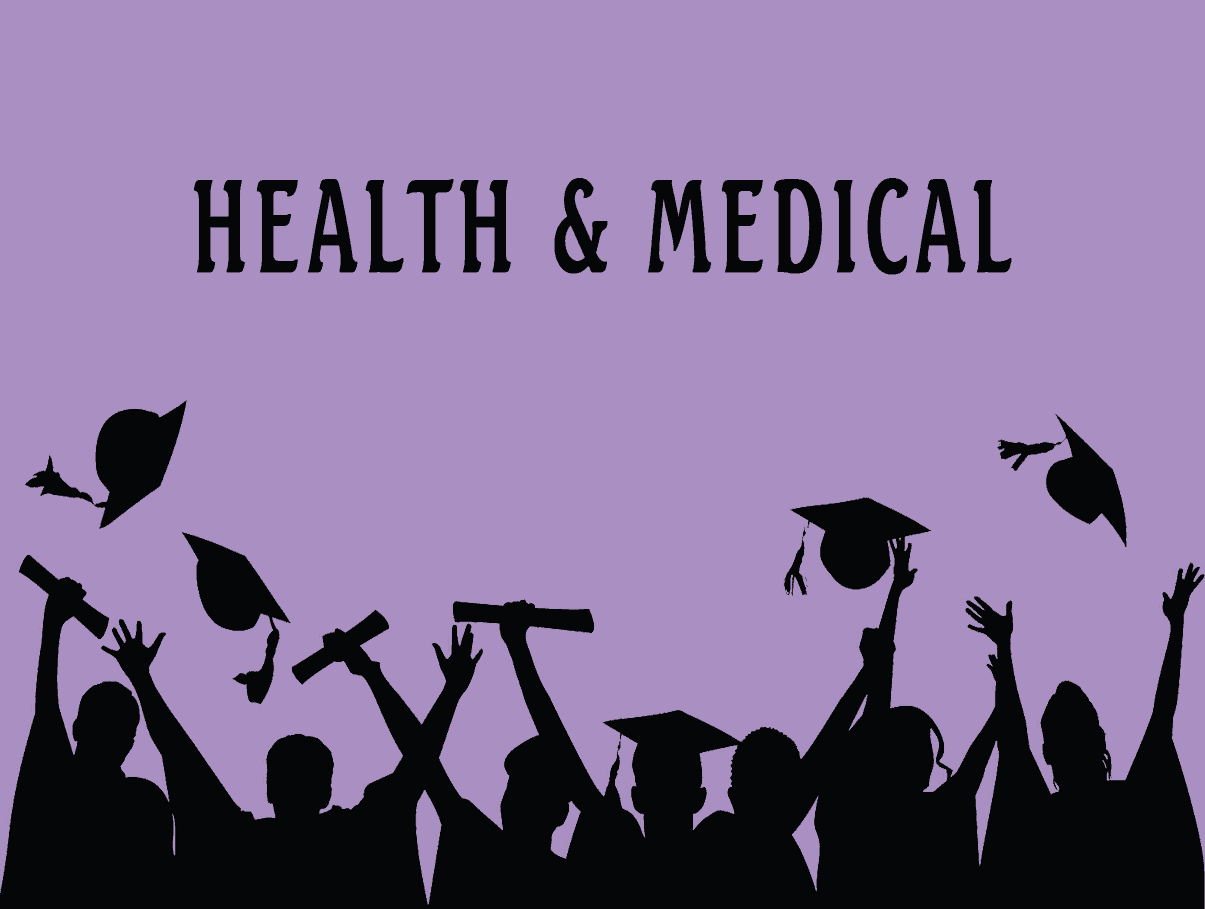Degree in Health and Medical Sciences
- Clinical Laboratory Science
- Communication Disorders
- Counseling
- Dental Hygiene
- EMT & Paramedic
- Forensic Medicine
- Gerontology
- Health Information Technology
- Health Promotion
- Health Services
- Healthcare Administration
- Healthcare Management
- Long-term Care
- Medical Assisting
- Medical Billing & Coding
- Medical Informatics
- Nursing
- Nutrition Food Science
- Occupational Safety Health
- Occupational Therapy
- Pharmacy
- Physical Therapy
- Physician Assistant
- Psychology
- Public Health
- Radiologic Science
- Respiratory Therapy
- RN to BSN
- Sports Science
Health and medical science majors enjoy a wealth of career opportunities, from surgery to healthcare administration. Medical science education generally focuses on pre-professional coursework, building a foundation for later education in graduate or professional schools. On the other hand, health science majors study the role of science in medical investigations, especially in areas like diagnostics and rehabilitation. Health and medical sciences majors may find careers in hospitals, in health agencies, or in major pharmaceutical companies, just to name a few options.
What Jobs Are Hot in Health and Medical Sciences?
Nurse — It’s not the uniform that calls people to this profession in droves. Nurses can be involved in just about any aspect of healthcare, and they can often find a position without going through the long, intensive schooling required of doctors.
Medical Assistant — Many doctors rely heavily on medical assistants, both to help them perform their own duties and to dispense vital patient care of their own.
Physical Therapist — As Americans live longer and recover more quickly and successfully from major surgeries, they are finding themselves more often in need of physical therapists to help them maintain comfort and mobility. Physical therapists might be able to find work in a hospital setting, in a private practice, or even in client homes.
Pharmaceutical Representatives — To inform health professionals around the country about breakthroughs in medicine, pharmaceutical companies need pharmaceutical representatives who can speak with doctors and other caregivers about the benefits of their prescription drugs.
Online Degrees in Medical and Health Sciences
It sounds counterintuitive, but thanks to advanced technologies, more and more healthcare students are able to earn their degrees partially or entirely online, depending on their specialties. Physicians and nurses, of course, must go through hands-on training, but aspiring healthcare administrators, psychologists, public health specialists and even nurse administrators have the option to study online. Distance education makes training possible for students who live in remote areas, far from teaching hospitals or career colleges, and those who must continue to work part- or full-time while they study.
Online degrees have become particularly popular for healthcare managers, whose work does not involve direct clinical contact, and registered nurses who have completed hands-on training and want to advance to managerial roles with a BSN or MSN. In some cases, even clinical degrees may be earned through hybrid programs, in which the student learns theory online and arranges for physical experience locally.
What Kinds of Candidates Make the Best Health and Medical Sciences Majors?
Because balanced, bright, and considerate individuals make the best health and medical sciences majors, admissions officers search for these positive traits and life experiences among their applicants:
- Solid high school grade point averages
- Strong scores on standardized tests like the SAT
- A positive, upbeat personality
- Volunteer experience in a hospital or other health care setting
- Community involvement
- Demonstrated problem-solving skills
Although the ability to absorb and apply complex medical theory is important, most health and medical sciences programs emphasize the need for a graduate to enjoy life as a well-rounded individual. The quality of healthcare depends on filling vacant positions with smart people who possess a good bedside manner. Because consumers gain more control over their health care choices every year, strong patient service can directly impact whether a graduate’s employer thrives or suffers over the years to come.




